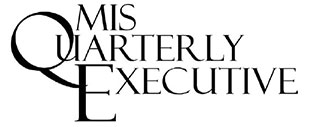Home > Journals > AIS Journals > MISQE > Vol. 10 (2011) > Iss. 1

Abstract
This article focuses on the emerging CIO role of business technology strategist and its relationship with the three traditional IT management roles - informational, decisional, and interpersonal. Our starting assumption was that two characteristics of a CIO may also influence his or her ability to perform this emerging role: 1) the formal power derived from the CIO's reporting level and 2) the CIO's technical background (technical education and experience). Based on a field study of 45 CIOs, we find that the role of business technology strategist is most strongly related to the CIO's formal power and to his or her skills in absorbing and disseminating relevant information (the informational role). A technical background (technical credibility) is more important for the performance of the other two traditional roles (decisional and interpersonal), which are focused on managing IT resources. These findings on multiple CIO roles therefore help to reconcile a debate in the practitioner literature about how best to leverage CIOs as business technology strategists. CIOs who report to the CEO or a CxO will take an "outside-in" approach that leverages their access to top management. In contrast, in firms that have placed a less strategic focus on IT, CIOs with less formal power will take an "inside-out" approach that leverages their strong technical expertise and effective management of IT resources.
Recommended Citation
Thatcher, Jason Bennett; Carter, Michelle; and Grover, Varun
(2011)
"The Emerging CIO Role of Business Technology Strategist,"
MIS Quarterly Executive: Vol. 10:
Iss.
1, Article 4.
Available at:
https://aisel.aisnet.org/misqe/vol10/iss1/4

